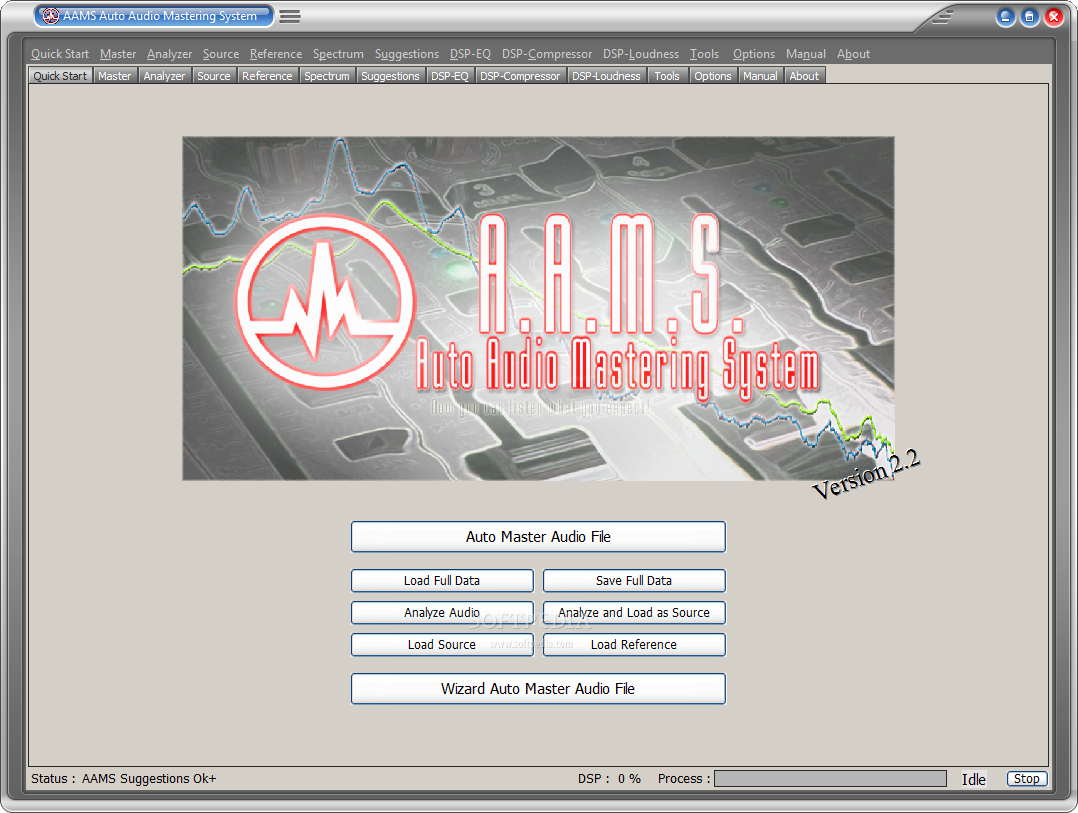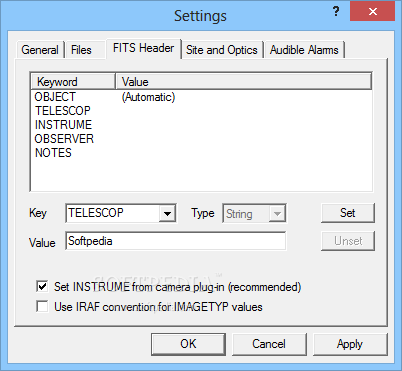Aams Mastering Keygen
Auto Audio mastering System (AAMS)All this talk about LANDR and self Mastering reminded me of this software: AAMS. AAMS is a stand-alone, automatic mastering program. It analyses your song, performs corrective EQ, compresses and Limits. You can download a working demo for free: It works better than expected. I played with the demo version for about one month. The hardest part is that you have to choose an EQ curve from the included database that will be used to EQ match your song.
There is no easy way to do this. You have to use the trial-and-error method of choosing an EQ curve. The one that worked best for me was named 'Girl Group' or something like that. The final output from AAMS was -13dB RMS average volume.
It had a nice punch from the compression and it didn't sound overly compressed or limited. I wish I could turn off the EQ matching. This was the one thing that prevented me from purchasing the full version. Try it if you feel adventurous. Just wanted to give this thread a bump, since it's apparently been greeted by yawns. I'd tried this out (version 1) a few years ago, and although I wasn't exactly blown away, I have to say that it gets results at least comparable to LANDR, but with GOBS more helpful information provided. Spurred by Mike's post, I've re-downloaded the free version, which is now at version 3.
There have been many UI improvements since I last looked at it, but it still does not score highly in terms of user-friendliness. One downside is that it's still agonizingly slow. A file analysis on a 104 MB 32-bit wave file took about 5 minutes.
I meant to just let it analyzing an existing (gently mastered) file, but inadvertently let AAMS auto-master it instead. This took awhile, but I now see why. It included a 'conversion' step, saying it was converting it to a 32-bit file (from what? I thought.the source file was already 32 bits). When I looked in the folder, it had left me 3 versions of the file: MP3 (192 kb/s), 16-bit and 32-bit. Then I was given a report that compared my master against a generic 'progressive rock' reference (one of 700 !
references provided) and multiple reports showing what it had done. The good news is that AAMS chose very subtle changes, which is what you'd hope for on an already-mastered file. Ubuntu font free download. Like LANDR, you can't specify a LUFS target. A/Bing the original and AAMS versions, there wasn't a huge difference between them.
This I interpret as a good thing. The auto-mastered version was a little louder (-14.5 ave. RMS vs -16 db) and slightly brighter. The overall song dynamics were preserved and the bass wasn't hyped. All in all, perfectly acceptable results, using only default options. What's nice about this software is that you don't have to use it to actually do your mastering, but rather to perform an analysis, let it report what it thinks you need to do, and then do it yourself. The free version lacks a few controls (e.g.
File conversion), but is quite usable. The full version is $71.50 and you can demo it. After more experimentation, I have to retract my statement that the free version is usable.
If you attempt to load a song that's 5 minutes long, the program aborts. It's not a bug, but a limitation of the free version.
Given that much of my stuff averages around 5 minutes in duration, that makes it unusable. There are also more restrictions than I noticed at first.
You cannot, for example, analyse a single file. So once again, AAMS, though it looks intriguing, gets uninstalled. The full version might be more useful, but you'll have to fork over some money to find out.
Aams Mastering Keygen Torrent
Curiously, the website explicitly states that 'AAMS is windows freeware', perhaps an unintentional leftover from when it was. Bitflipper After more experimentation, I have to retract my statement that the free version is usable. If you attempt to load a song that's 5 minutes long, the program aborts.
It's not a bug, but a limitation of the free version. Given that much of my stuff averages around 5 minutes in duration, that makes it unusable. There are also more restrictions than I noticed at first. You cannot, for example, analyse a single file. So once again, AAMS, though it looks intriguing, gets uninstalled. The full version might be more useful, but you'll have to fork over some money to find out.
Curiously, the website explicitly states that 'AAMS is windows freeware', perhaps an unintentional leftover from when it was.I had an earlier version (3.1 maybe?). It was freeware with an honor system of paying if you like it. It had some features removed such as batch processing.
It would master one song at a time. I don't remember the 5 minute song length limit so maybe the dev added that. If it was a little cheaper (say 29 US dollars) I might purchase it. LeadfootI'm really liking what I'm hearing so far with AAMS. The depth of this program is very impressive.

Every song I've run through it so far has sounded better and smoother after AAMS. I'm very close to purchasing.I had some good luck with it too except I didn't like what the EQ was doing. It made my songs too bright.
Perhaps I hadn't worked with it enough to get the full benefit. I really liked what the compressors did. They took the sharp edge off but kept the punchy attacks. The program is sort of amazing from the amount of work that the dev put into it. He needs someone to help with his English since it is not his first language.:-) I'm going to download the latest and give it a try again. MikedocyWhat reference file name did you use, if you don't mind telling?Cool about the purchase.
Let us know how you like it.Thanks.I only messed with one song since getting the key code, so I don't have much to report yet, except that I'm glad I bought the license. Thank you for creating this thread, Mike. I would have never discovered AAMS by myself.
The reference file I used was in the Rock folder. It had 1990-2015 in the title. Admittedly, I didn't audition many reference files, so I'm sure there are more suitable ones for my music. I like how you can create your own. I made one from a Soundgarden song I really like the sound of, and used it on one of mine.
Very cool program. There are so many things you can do with AAMS. I haven't even scratched the surface! I have gone to great lengths to self-master my various CDs out there in the void. I have had AAMS for a number of years but never used it because I didn't understand how to use it. Because I never read the manual. So, anyway, being bored, I read the manual couple times and watched the videos.
Listening to what it does against the various 'references' it seemed that the 'modern.aam' reference worked best for my stuff. Choosing to use the 50 band EQ and 8 band compression, I fed it a few of my already 'mastered' mixes and was very pleased.

Once I looked at what it had done to the EQ, I saw that I did have a bit too much low end in some of my tunes, etc. Bottom line is that I agreed with what AAMS was showing me as deficiencies in my technique, and that the result sounded better than it did before processing. So I'm kinda blown away I've had this and never gave it a try. For example on my self-mastered song 'Always Me', all of the EQ bands consisted of tweaks in the 1 - 2 db +/- range which seemed to indicate that I had generally done a fairly good job, and that AAMS was not going EQ-batsh.t. However, it did choose a 3.7 boost at 56 Hz and a 4 db cut at 103.
So I listened closely to the 2 versions, and I had to admit that the AAMS version had a cleaner sounding low end, and that the kick stood out tighter and more clear. The compression across the 8 bands was a gentle 2:1 with 1 to 3 db compress which is what you might expect from mastering. I helped construct a million dollar studio (that immediately went bankrupt), and have been recording more years than I would care to admit. I've treated my room to handle early reflections, and have bass traps in the rear corners. I have sophisticated and costly plug-ins. I've studied to make myself better at what I do.
Both me and my wife (who has perfectly flat 20 to 20,000 hearing) think that AAMS re-masters of my masters sound better than my masters. I've come back to this, as I am having to 'master' 4 albums ASAP. It turns out that AAMS in auto-mode can sometimes do a good job of sorts, and other times create a real turd. AAMS seems to do a good job balancing R/L, applying a reasonable loudness boost, and at applying the type of gentle compression you'd might expect from mastering. Its weakness seems to be in applying EQ hit or miss; however, it does give you some insight into how the EQ of your raw mix might benefit from some changes. Bottom line is that you have to play around with the EQ and use your EARS. As I can't remember all the steps, I had to make myself a 'How To' below.
This is relevant to version 2.5. Note: Running AAMS manually does not generate a “mastering report” like it does in automatic mode. If you want (for some reason) to have a record of what you have done to the mix, you will have to keep notes or screen shots.
Copy wav file(s) to master to the “C:Program Files (x86)AAMSAAMS FilesSources” directory. This eases process immensely.
Aams Mastering Keygen Free
Create AAM file from your mix. Select the 'Analyzer' tab, and depress the 'Analyze Single Audio File'. (Or you can do a batch as well, as this process takes several minutes per song.) You can also take a professionally mastered song and 'analyze' that to make an.aam file, then copy that into the “C:Program Files (x86)AAMSAAMS FilesReferences” directory.
Select the 'Source' tab, and load the Step 3 AAM as source.